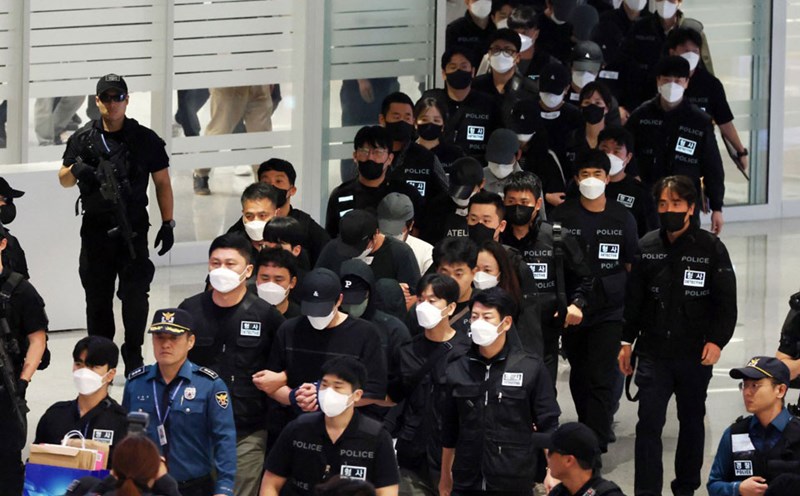Busan Institute of Science and Technology (Korea) has a special classroom with coffins lined up in classrooms. This is where students practice as funeral managers for a rapidly aging society. They meticulously covered the traditional lace with a salad dressing, flattening it like taking care of the real person, then gently placing it in the coffin.
Student Jang Jin-yeong (27 years old) said he chose this major because he felt the demand would increase as the population aged. Im Sae-jin (23 years old) said he was moved after witnessing the thoughtfulness of the funeral arrangements on the day he took his grandmother away. I feel extremely grateful to them, he shared.
Record low birth rate and population over 50 account for nearly half, making the funeral service industry a field that attracts young human resources. Not only organizing a performance, a new profession has also emerged - those who specialize in cleaning the house after the owner's death, most of whom are lonely. Currently, single-parent households account for 42% of total housing in Korea, reflecting the trend of isolated living in modern society.
Mr. Cho Eun-seok (47 years old) used to be a classical musician, now doing the job of cleaning up houses where the dead were found, sometimes after many months. He called them "portraits of life", with traces left: hundreds of bottles of soju arranged in a short position, unopen gift boxes, or dusty walls. South Korea currently has the highest rate of suicide among developed countries and many cases of "lonely dying" are self-death anniversaries.
Mr. Cho said that recently, he has also been called by used car rental companies to move the cars where customers have ended their lives. He is developing a device that can detect early signs of unknown deaths, to reduce the risk of environmental pollution and property damage.
The work sometimes goes beyond the task of cleaning. Mr. Kim Seok-jung - a veteran employee in the industry - said that he once found a late musician in his house who had not yet shared a song with his family and helped turn it into a commemorative song.
Meanwhile, Mr. Cho always remembers the case of a female high school student living alone in a small "gosiwon" room, suffering from depression after fleeing domestic violence. When she passed away, he discovered that the hamster rat she had asked to keep was still alive in a small box - next to the guitar that she had dreamed of playing music.
The moment I saw the hamster, I just thought I had to save it, he said.
According to Mr. Kim Doo-nyeon, the number of young people participating in the funeral industry is increasing rapidly. When people live together, even if someone is gone, the things still exist. But when someone dies alone, everything has to be clean, he said.











